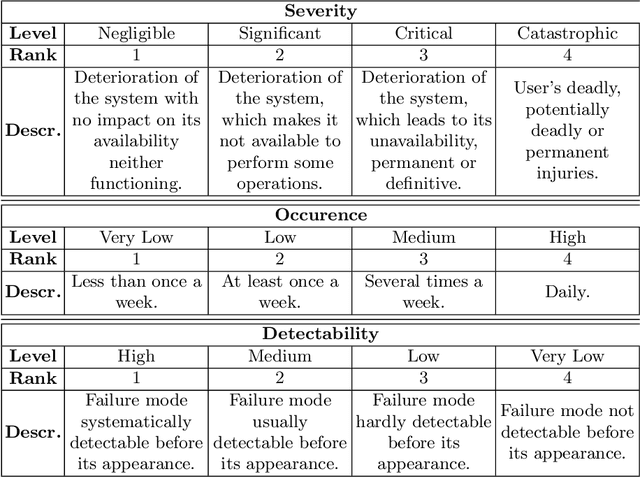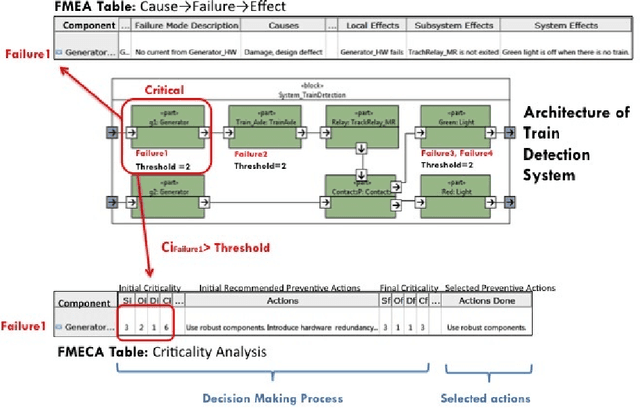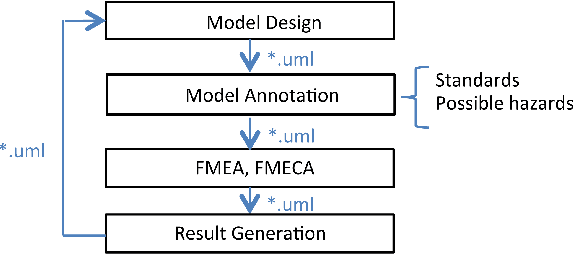Sara Tucci-Piergiovanni
Multi-Agent Optimization for Safety Analysis of Cyber-Physical Systems: Position Paper
Mar 25, 2024


Abstract:Failure Mode, Effects and Criticality Analysis (FMECA) is one of the safety analysis methods recommended by most of the international standards. The classical FMECA is made in a form of a table filled in either manually or by using safety analysis tools. In both cases, the design engineers have to choose the trade-offs between safety and other development constraints. In the case of complex cyber-physical systems (CPS) with thousands of specified constraints, this may lead to severe problems and significantly impact the overall criticality of CPS. In this paper, we propose to adopt optimization techniques to automate the decision making process conducted after FMECA of CPS. We describe a multi-agent based optimization method which extends classical FMECA for offering optimal solutions in terms of criticality and development constraints of CPS.
Towards Secure and Trusted-by-Design Smart Contracts
Mar 25, 2024Abstract:Distributed immutable ledgers, or blockchains, allow the secure digitization of evidential transactions without relying on a trusted third-party. Evidential transactions involve the exchange of any form of physical evidence, such as money, birth certificate, visas, tickets, etc. Most of the time, evidential transactions occur in the context of complex procedures, called evidential protocols, among physical agents. The blockchain provides the mechanisms to transfer evidence, while smart contracts - programs executing within the blockchain in a decentralized and replicated fashion - allow encoding evidential protocols on top of a blockchain. As a smart contract foregoes trusted third-parties and runs on several machines anonymously, it constitutes a highly critical program that has to be secure and trusted-by-design. While most of the current smart contract languages focus on easy programmability, they do not directly address the need of guaranteeing trust and accountability, which becomes a significant issue when evidential protocols are encoded as smart contracts.
 Add to Chrome
Add to Chrome Add to Firefox
Add to Firefox Add to Edge
Add to Edge